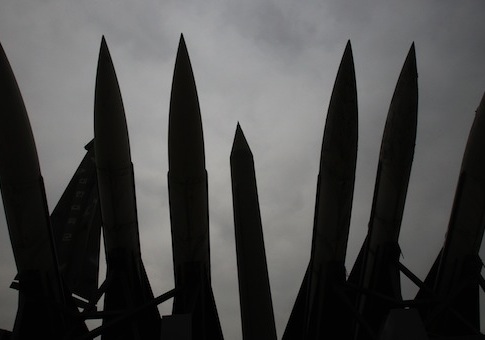Bowing to Iran’s pursuit of nuclear capability will make it harder to enforce America’s longstanding policy of non-proliferation among enemies and allies alike, according to several foreign policy experts speaking at the Heritage Foundation on Tuesday.
Experts warned that proliferation would grow more difficult to control in the coming years, saying that America is no longer in a position to police nuclear development around the world.
"The fundamental problem is that we’re giving ground on what has been a principle of U.S. non proliferation policy for 70 years, which is the spread of enrichment and reprocessing to any country, even our allies, as a problem. And what this Iran deal does is make an exception, not just for any country, but for Iran, a country that’s continually cheating on its agreements. So in the wake of the deal, I think it becomes very hard for us to go to our allies and say, ‘we trust Tehran with this technology, but we don’t trust you,’" said Matthew Kroenig, an associate professor at Georgetown University.
The American government is limited in its capacity to control nuclear development internationally, and new incentives for foreign states to rein in their nuclear development must be implemented, the experts said.
"As we understand how the world is changing, it is certainly impacting how we manage the proliferation threat, and I believe that getting out in front of this, thinking beyond the limited ability of the state to control proliferation in the future, is going to be essential to successful non-proliferation efforts," said Brian Finlay, vice president of the Stimson Center.
He went on to discuss how non-state actors can play a role in deterring nuclear aggression, as governments can be limited in proposing valid incentives for states to restrict their nuclear development. Finlay pointed to the India-Pakistan conflict in the 1980s, when multinational business threatened to withdraw from India if the scare was not allayed.
"A group of very senior level executives from an array of companies got together and sent a very clear message to the Indian Prime Minister. ‘This crisis is bad for business and if we decide to leave India, we will not return,’" he said. "It had the ultimate effect of, I think, contributing significantly to the easing of nuclear tensions between the two countries, and it returned to semi-regular relations between the two countries."
